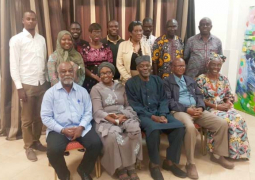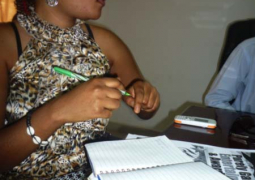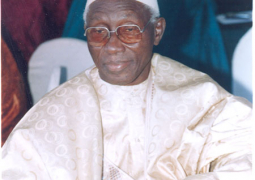Eid al Adha is one of the traditional big feasts in Islam since the Prophet Ibrahim's (A.S) time.
Eid al Adha always follows the Eid al Fitr - an Islamic feast marking the end of Ramadan. Eid al Adha, also known as Tobaski, is believed to foster unity and harmony among families and especially neighbours.
When it is time for Tobaski, nearly all family heads in every household in Muslim communities buys and sacrifices a ram to ALLAH after the prayers have been performed. This is the most interesting part of the day apart from the 'salibo'. Thus, sparking off the excitement and euphoria amongst young children who would be looming around for their own part of the meat to barbecue. Meanwhile, the females of the family will be cooking in the kitchen.
Most households in The Gambia love to cook Benachin on Tobaski day. When the food is done, even when a passer - by is passing by he is welcomed to eat with the family. This is believed to be an African, especially Senegambian, hospitality. When one is invited to eat, one should eat to honour the invitation even if it would be two mouthfuls of the wollof dish.
But mind you, you mustn't eat all the food even if you are hungry, because that is believed to be no sign of respect and an insult to the family head for not preparing enough food.
As Eid al Adha is fast approaching, I decided to look at the bustling Serekunda market. The market was bursting with people at its seams as buyers and sellers argued over food, clothes and shoe prices. As I took a few steps near a group of women who sold some greenery, I saw a tall fair skinned woman with a bulky frame counting her earnings of the day before putting them back in her wallet. Upon closer inspection, I noticed that the woman was sitting on an old bucket, which may give away at any time.
When I reached her, she raised her head and half shut her eyes against the scorching sun to have a closer look at me, hoping that I was a prospective customer. All hope was drained off her face when we exchanged pleasantries and I told her that I was from The Point. Upon further acquaintance and questioning, I learnt that with the upcoming celebrations; this woman's day starts at dusk and ends at dawn to see to it that her family's needs are met for the Tobaski. Since economic crisis threatened and left her husband jobless, her share of the family load has become even more inequitable.
I later decided to go into the market. There were Gambians and non- - Gambians alike hustling with their goods. When I reached the baobab tree near the Serrekunda police station, I saw labourers hurling boxes of potatoes from a lorry into a big shop. Potato is one of the rooted crops highly demanded on Tobaski day. It is usually cooked with Benachin, Domoda, Yassa and pepper soup.
I cannot finish narrating what I saw, but I will never forget the faces of the women I saw in their relentless struggle to make the most awaited day - Tobaski- an enjoyable one for their children and families as a whole.





